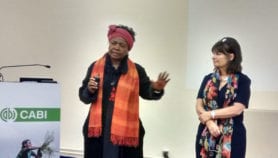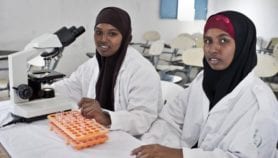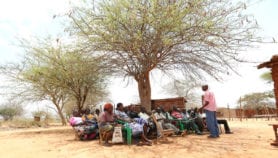By: Katie Mantell
Send to a friend
The details you provide on this page will not be used to send unsolicited email, and will not be sold to a 3rd party. See privacy policy.
Plans for a centre to collect and analyse environmental data from across the globe as an aid to better environmental policy-making are being drawn up by the United Arab Emirates (UAE).
The proposed centre, which would bring together data on issues such as air pollution and marine ecosystems, is intended to encourage the exchange of environmental information between regions.
“It would help a lot of developing countries,” says Majid Al Mansouri, acting secretary-general of the UAE’s Environmental Research and Wildlife Development Agency (ERWDA), which is leading the initiative.
“Regions have the same or similar problems, and can learn from each other. The data will help decision-makers to come up with solutions.”
The proposal has already received the support of the United Nations Environment Programme and several US universities. It will be presented at the World Summit on Sustainable Development in Johannesburg, South Africa, later this year.
During the summit meeting, says Al Mansouri, the organisers of the proposed environmental data centre hope to “consolidate the initiative and see how it will go forward”.
The UAE will initially invest US$3-5 million in launching the project, known as the Abu Dhabi Global Initiative on Environmental Data Collection.
Once the headquarters are established in Abu Dhabi, it plans to approach national governments and other donors to set up seven regional offices in Central, South and South East Asia, North and South Africa, the Middle East and Latin America.
The UAE is well-placed to launch this kind of initiative, says Joel Morrison, director of the Center for Mapping at the Ohio State University, who is advising the ERWDA on how to collect high quality environmental data.
“They are thoroughly up-to-date technologically, and can provide the kind of electronic technology that is needed,” he says. “(Furthermore), the UAE has traditionally been a crossroads for the past 5,000 years.”
Al Mansouri hopes that the initiative will be up and running in between two and five years’ time.
“The main difficulty in achieving sustainable development is the lack of (good quality) environmental data,” he says. “This is a unique initiative that will help the world achieve this for the next generation.”
© SciDev.Net 2002
See also:
Environmental Research and Wildlife Development Agency
World Summit on Sustainable Development
More on Networks

Script media release
Journalists offered ‘big break’ mentoring opportunity from Radio Nigeria
03/04/19












